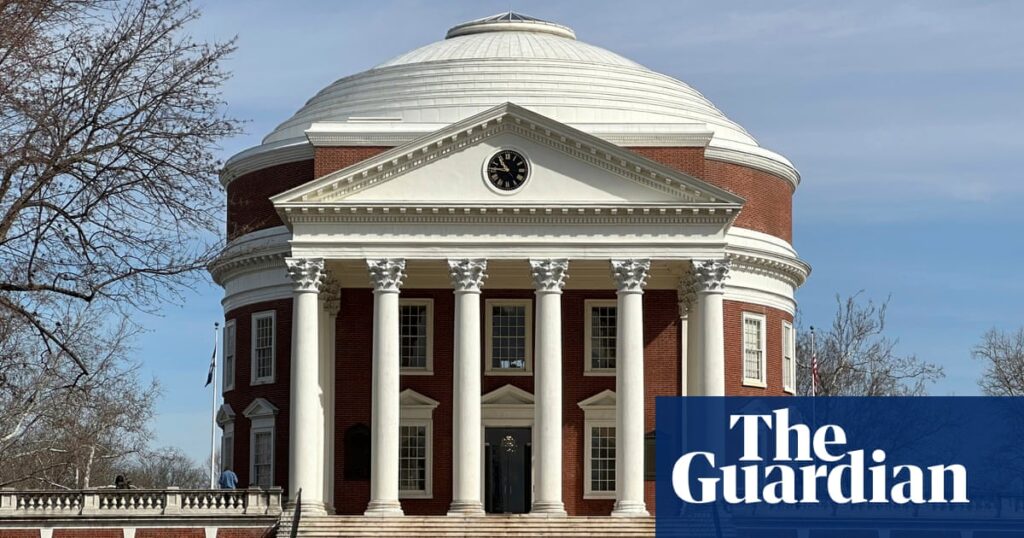
The University of Virginia (UVA) has reportedly received an “explicit” threat from the Trump administration, warning of severe consequences including job cuts, funding reductions, and visa restrictions if the institution’s president, Jim Ryan, did not resign. This revelation was made by U.S. Senator Mark Warner during an interview on CBS’s Face the Nation.
Senator Warner, a Democrat representing Virginia, defended Ryan, who has been a proponent of diversity policies that have drawn the ire of President Donald Trump. Warner predicted that other universities might soon face similar threats. According to Warner, the former UVA president was informed that defying the administration could result in significant job losses, reduced research funding, and jeopardized student financial aid and visas.
The Resignation of UVA President Jim Ryan
Jim Ryan resigned from his position as UVA president last Friday, amidst mounting political pressure from Washington. His resignation was reportedly linked to an ongoing Department of Justice investigation into UVA’s diversity, equity, and inclusion (DEI) policies. The New York Times reported that Ryan faced a deadline to resign or face the threatened cuts.
In his resignation message, Ryan stated, “I cannot make a unilateral decision to fight the federal government in order to save my own job.” He expressed concern over the potential impact on university staff and students, emphasizing his unwillingness to risk their employment and financial aid.
Background and Context
Jim Ryan, who had been serving as the university’s president since 2018, was known for his efforts to increase diversity on campus and encourage community service among students. His leadership style and policies, however, clashed with the Trump administration’s stance on DEI initiatives.
Senator Warner criticized the administration’s actions, describing them as an overreach into educational affairs. He remarked, “They are doing damage to our flagship university. And if they can do it here, they’ll do it elsewhere.”
Comparisons to Other Universities
Warner drew parallels to President Trump’s ongoing disputes with Harvard University, the oldest in the United States. The administration has previously threatened to cut funding and restrict foreign student visas over Harvard’s DEI policies. Warner suggested that these actions are part of a broader strategy to reshape higher education in the U.S.
“They all want to make them like Harvard,” Warner said. “End of the day, this is going to hurt our universities, chase away that world-class talent.”
Implications for Higher Education
The implications of these threats are significant, potentially setting a precedent for federal intervention in university governance and policy-making. Critics argue that such actions undermine academic freedom and could deter international students and researchers from choosing U.S. institutions.
Warner warned, “If we don’t have some level of academic freedom, then what kind of country are we?” This sentiment resonates with many in the academic community who fear that political interference could compromise the integrity and autonomy of educational institutions.
Looking Ahead
As the situation unfolds, other universities may find themselves navigating similar challenges. The broader academic community is closely monitoring developments, concerned about the potential ripple effects across the nation’s higher education landscape.
For now, the University of Virginia must grapple with the immediate consequences of Ryan’s resignation and the potential impact on its staff and students. The university’s leadership will need to carefully consider its next steps in light of the federal government’s stance.
As the debate over DEI policies and academic freedom continues, the outcome of this confrontation could shape the future of higher education policy in the United States.





